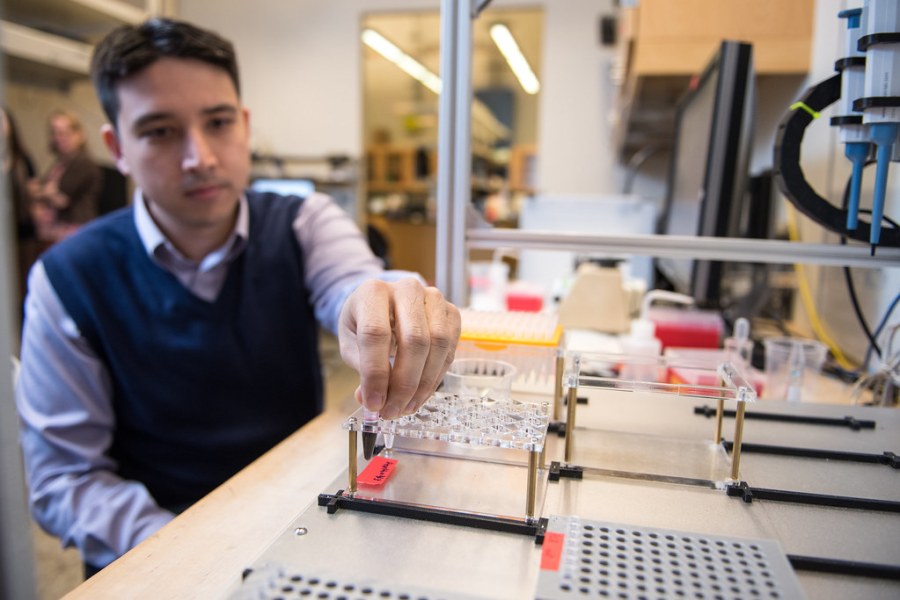What Is the Difference Between a Pharmacist and Chemist?

Pharmacists are healthcare professionals trained in the science of pharmacy. They are capable of dispensing medicinal drugs for various medical needs. Chemists are educated in the science of chemistry. They conduct research and experiments with chemical substances. These terms are often confused with one another. The main reason for this occurring is the confusion caused by the British English translation of the term “chemist.” This term is defined as being “a shop where you can purchase medicines.”
Pharmacist’s Responsibilities
While pharmacists are best known for filling prescriptions ordered by a doctor, their responsibilities are much greater. Some of their other responsibilities include:
- Providing instructions for properly taking medication to patients
- Check for negative interactions between prescriptions patients are taking
- Offer information about potential side effects of drugs
- Answer patients’ questions about general health topics, including diet, exercise, stress management, and other such issues
- Administer immunizations including flu shots and other vaccinations
- Complete insurance forms to help patients receive the coverage they are entitled to
- Supervise pharmacy technicians as well as pharmacists in training
- Manage the pharmacy records and perform other administrative tasks
- Teach proper medication therapies beneficial to patients for the knowledge building of other healthcare practitioners
Education
To work as a pharmacist, a person must earn a Doctor of Pharmacy degree. This is a postgraduate professional degree that is required to be accredited by the Accreditation Council for Pharmacy Education. Applicants to these programs must complete post-secondary courses in a related field such as chemistry, biology, and anatomy. Two years of undergraduate studies must be completed or a bachelor’s degree in a related area as deemed fitting by the program. To continue in the career path, an applicant must pass the Pharmacy College Admissions Test (PCAT).
Most Doctor of Pharmacy degree programs take four years to finish. Some programs are available on a three-year option. The programs do cover in-depth education in areas of chemistry, pharmacology, and medical ethics. Supervised work experiences are necessary, including internships in hospitals and retail pharmacy settings.
Work Environment
There are different types of pharmacists. These include:
- Clinical pharmacists
- Consultant pharmacists
- Pharmaceutical industry pharmacists
- Community pharmacists
- College professors
The type of environment a pharmacist works in depends on the type of pharmacist in which they are. For example, community pharmacists and consultant pharmacists often work in a fast-paced environment. They must have a sense of detail, be people-oriented, and maintain a sterile, well-organized workspace.
Pharmaceutical industry pharmacists often go out to doctors’ offices and promote medications that are made available for various types of illnesses or health-related conditions. They must maintain a professional demeanor and have strong articulation skills.
College professors work within a classroom. They must be patient and detail-oriented. They spend long hours providing in-depth teachings about various medical conditions and treatment methods available.
Chemist’s Responsibilities
A chemist conducts studies on an atomic and molecular level. They are responsible for learning how different substances interact with one another. It is their responsibility to develop new and improved products while testing available products for quality and safety purposes.
The duties of a chemist include:
- Planning and carrying out complex research projects
- Provide direction to technicians for testing and analyzing components of materials
- Provide instruction to scientists and technicians on the correct procedures for processing and testing chemicals
- Prepare solutions, compounds and other reagents that are used in various lab procedures
- Conduct analysis of substances to determine their composition and concentration
- Prepare reports about the technicalities and detailed methods of their findings
- Prepare presentations of their research for use by scientists, engineers, and colleagues
Education
To work as a chemist, you must receive your bachelor’s degree in chemistry or a related field from an accredited program. Many chemistry jobs do require that an applicant go on to earn a master’s degree or Ph.D. for any position higher than entry-level. Any chemist that is a lead in research must possess a Ph.D.
Courses in analytical, organic, inorganic, and physical chemistry are required by most undergraduate chemistry programs. Strong skill sets in math, biological sciences, and physics are also necessary. Due to the amount of time chemists work on computers documenting their research and findings, they must complete a wide range of computer science courses. This will allow for the modeling and simulation tasks, data management, and database manipulations that are necessary.
Candidates must achieve a specific level of laboratory experience. This experience can be earned in college or university programs, through internships, fellowships, or work-study programs directly in the industry of chemistry.
Most graduate students lean on their learnings from specialized subfields. These fields include areas of analytical chemistry or inorganic chemistry, for example. Most chemists do develop strong skills in medicine or organic chemistry through their work experiences.
Work Environment
There is a wide range of chemists that work within different fields. These types of positions include:
- Analytical chemists
- Inorganic chemists
- Medicinal chemists
- Organic chemists
- Physical chemists
- Theoretical chemists
As with pharmacists, the type of work environment in which these professionals perform their duties depends on the type of chemist they are. The most common similarities for all chemists are that they must maintain a well-organized and tidy space. This allows for accurate data collection from their research. Much of their time is spent alone in an isolated space. Depending on the nature of the research projects that a chemist is performing determines the hours they must work.





